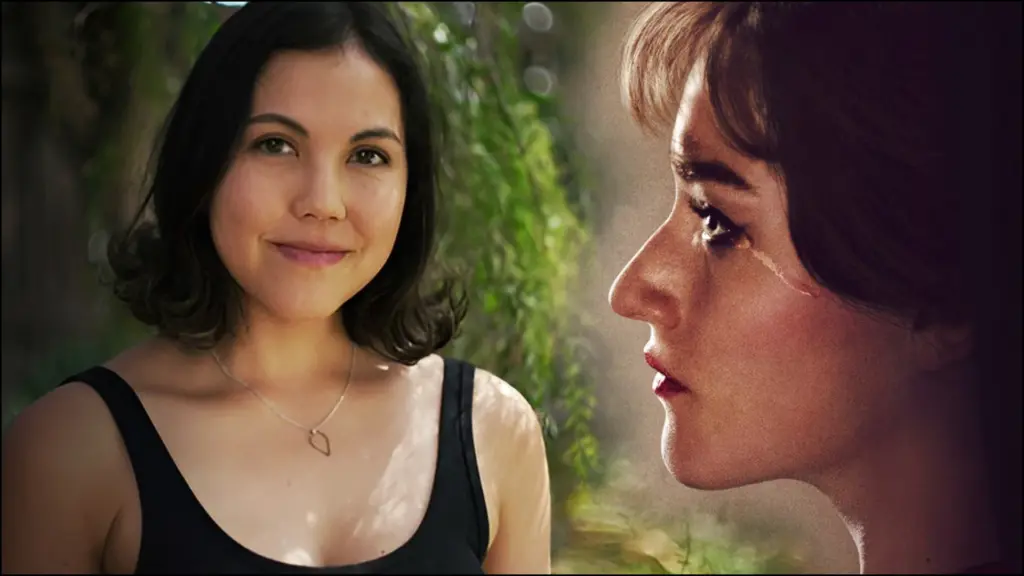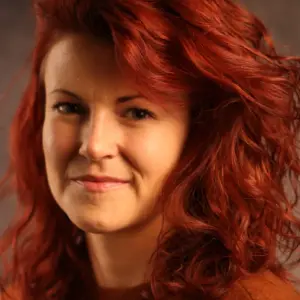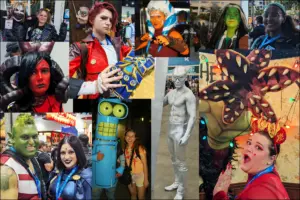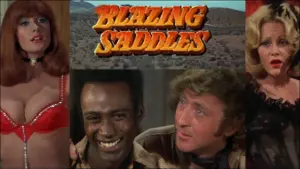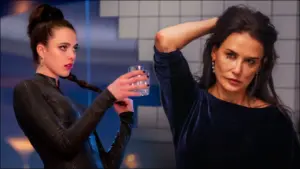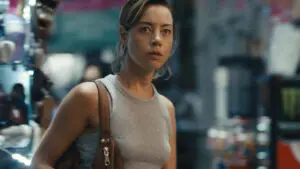After making a name for herself on the scene with her groundbreaking 2020 hit Relic, a uniquely heightened thriller about the surreal effects of generational trauma, Australia-based director Natalie Erika James is back with Apartment 7A, a prequel to the 1968 classic, Rosemary’s Baby.
In the film, an ambitious young dancer Terry Gionoffrio (Julia Garner) dreams of fame and fortune in New York City, but after suffering a devastating injury, an older, wealthy couple (Dianne Wiest and Kevin McNally) welcomes her into their home in the luxury apartment building the Bramford. When fellow resident and influential Broadway producer (Jim Sturgess) offers her another chance at fame, it seems that all her dreams are finally coming true. However, after an evening she can’t fully remember, disturbing circumstances soon have her second-guessing the sacrifices she’s willing to make for her career as she realizes that something evil is living not only in Apartment 7A, but in the Bramford itself.
Catching up with the director during her time at Fantastic Fest, I learned about her affinity for playing with production design in her films to create a sense of illusion, crafting dance numbers to express the characters’ state of mind, what it was like working with Ozark’s Julia Garner, whether or not creating a connective tissue to Roman Polanski’s original property proved valuable in the filmmaker’s eyes, and what she learned from her time spent on Apartment 7A that she’s already taking with her to work on her next project.
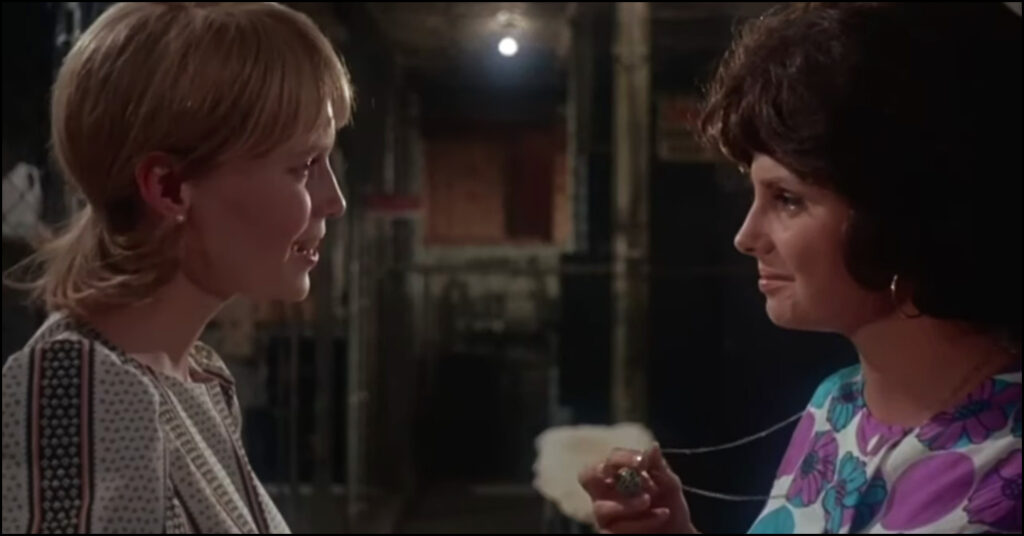
Interview with Natalie Erika James
Kalyn Corrigan: How important was the Rosemary’s Baby connection? For example, Kevin McNally, who plays Roman Castevet in your production, looks nearly identical to Sidney Blackmer, who played the same character in the original 1968 film. Were you trying to keep the same look as the previous property? How much did keeping things the same as before play into your interpretation of the material?
Natalie Erika James: When taking on a project like this, that has such an iconic IP attached to it, you want to make it something that references the original in a satisfying or respectful way, but still makes room to break new ground. I think we were really conscious of the decisions we were making that reflected the original film. So, something like the Bramford and continuing that continuity of setting was definitely a consideration.
But then, for example, in the creation of Dianne Wiest’s mini character, that felt like something we wanted to take a conscious departure from the original. It was a mix of both, I think, just trying to discern what elements we wanted to retain and what we wanted to have that stood on its own two feet.
Where was the idea of making Terry a performer birthed from?
I thought that was such a unique inclusion with this. I was originally approached with a script that had been written and then we kind of, my co-writer and I, worked to develop that further. So yeah, that was already in the project when I was approached.
I loved how Terry is both a vessel but also the agent of her own kind of fashion bargain — much like Guy [Guy Woodhouse, played by John Cassavetes] is in the original film. I think it was a great way to be within an adjacent entertainment industry and still continue that link between the cast of [the 1968 film] and their hold on the entertainment industry.
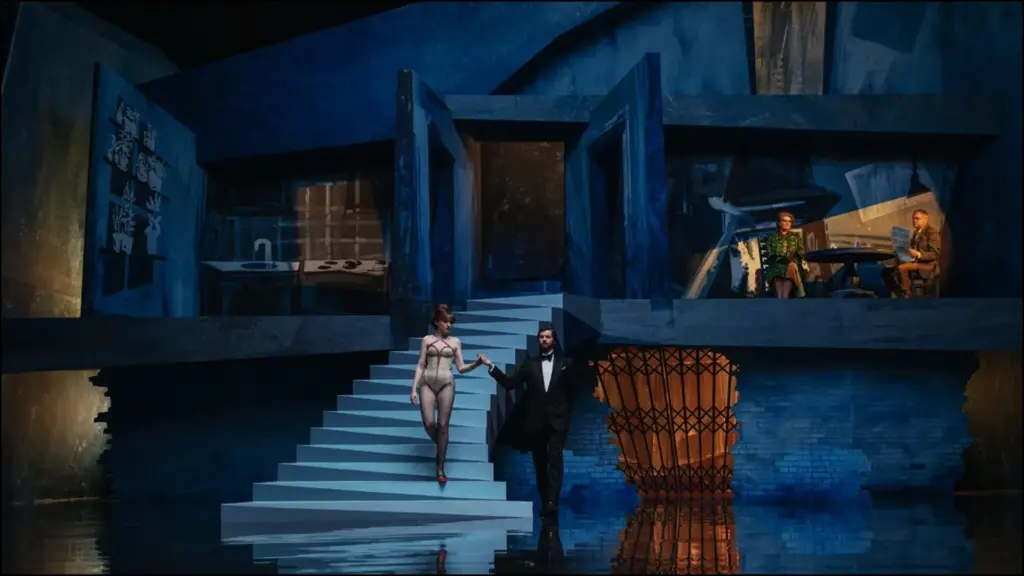
The musical dance numbers are my favorite part of the movie. I’m curious, were they written in detail in script, or was it just like “dance number here”? How did you envision the sequences? What did you want to use the dance sequences to express?
I really enjoy the more surreal sequences in Rosemary’s Baby, and so this felt like a really great opportunity to do our own version of that within the world that Terry inhabits, and probably the musicals that she grew up watching.
Yeah, they were pretty detailed within the script, but it was a whole new thing for me, taking on extended choreography and dance sequences. I loved working with Ashley Wallen and Lukas McFarlane, who were the choreographers. They did such a brilliant job of creating sequences that supported the horror. I love the whole process.
Julia Garner is terrific in this movie. She has appeared in a good handful of productions, but this does feel like something different than we’ve seen her in before. How did she come aboard?
She’s brilliant. I think I’d first seen her in We Are What We Are and was just struck by her performance in that, and then continued to follow her work through Ozark, and I think The Assistant as well. For this film in particular, I wanted someone who balanced intensity and vulnerability in a specific way, and I felt like she was a good fit for that.
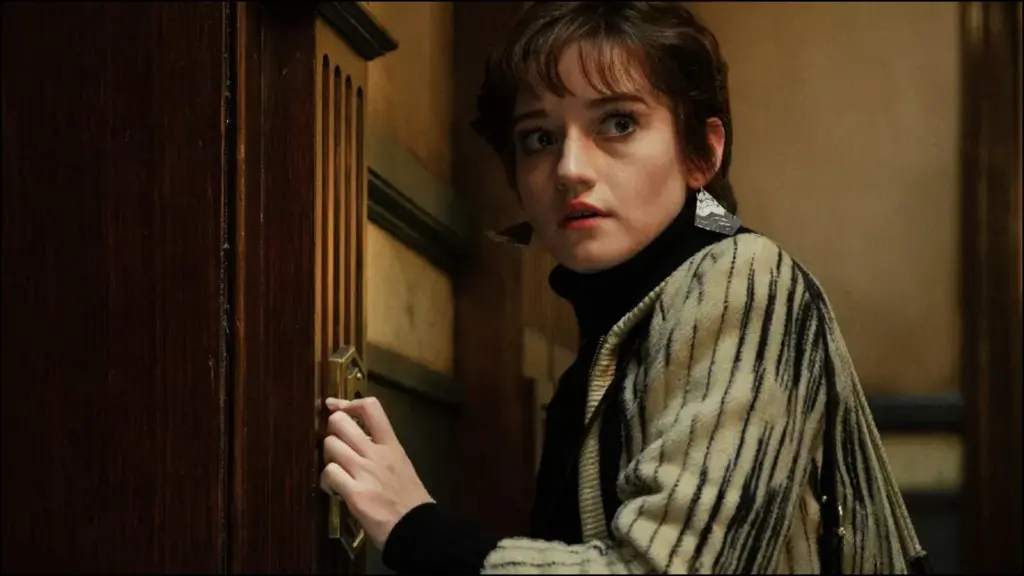
There’s a moment where Alan says to Terry, “I gotta say, I did not peg you for such a fighter.” How did you update the leading lady in this universe and infuse Terry with a bit more of a sense of agency than perhaps Mia Farrow’s depiction of Rosemary Woodhouse had in Roman Polanski’s original film?
It definitely feels like Terry is a more modern character, just in terms of her ambitions. I think the way we updated it was to have her be both effectively Guy and Rosemary. In a sense, she is the vessel, and also the one who is making the deal, even if she doesn’t really understand the actual repercussions of what that means. Obviously, she’s kind of caught in the cast of Ed’s web in that way. I think it’s a real thing for a woman who’s trying to achieve something with her career, and the lengths that you go to get there.
I’m a huge fan of your previous film, Relic, and I couldn’t help but notice a familiar moment in Apartment 7A that includes moving walls and shifting the environment around. Talk a little about your affinity for using the production design to distort reality and create a sense of confusion.
Yeah, I think that’s a common theme for me. The beauty of the horror genre is just being able to play with really surreal psychological imagery. For Terry, I think that this kind of horrific assault is so destabilizing that it makes sense that it fits within the Broadway world, and the idea of sets and flats that shift as the performance moves through it. I like the idea of something being so axis-tilting that the walls of your reality are shifting, themselves.
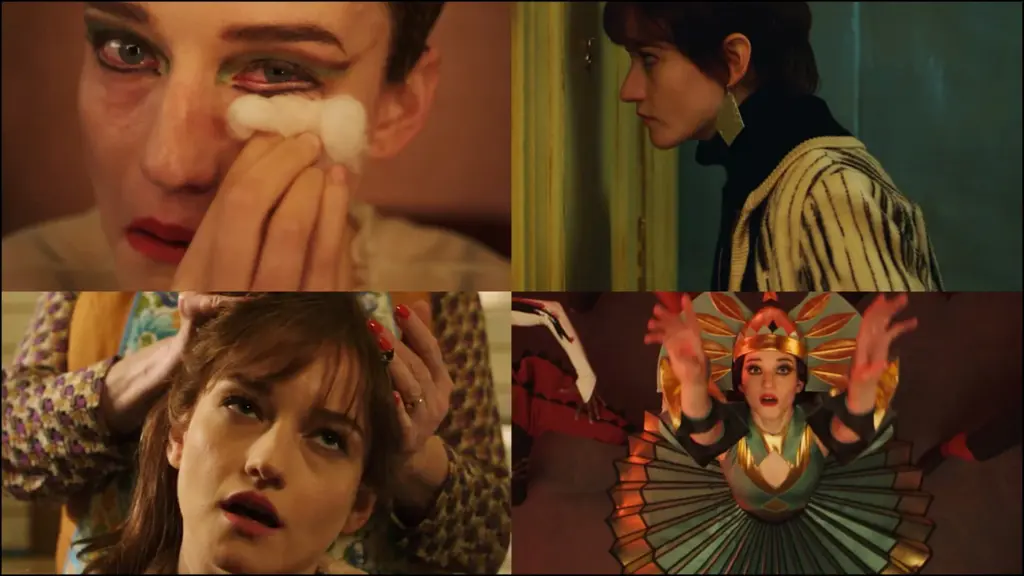
There also seems to be a common thread of generational trauma. I mean, one of the first things we see in the opening scene is Terry’s picture of her mother taped to her dressing room mirror. Was that intentional, or is that perhaps a way of you using your work as a vehicle to process certain things?
Oh, that’s a hard one. It’s hard to sum that up in a sentence. I mean, just speaking broadly, so much of how we are wired and how we make decisions in the world are so tied to how we’re raised. I think it was important to bring that side of her story to Terry, into the story and into the dark images that follow us from childhood.
How does Terry’s trauma over mother’s death create vulnerability for her mother figure Minnie (Dianne Wiest) to prey on?
One hundred percent, they really have a sense of how to exploit people’s vulnerabilities. I liked playing with the idea that maybe Terry thinks she can play the game, but she doesn’t realize the cards are really stacked against her, and that they’re reading her from the outset.
What did working on Apartment 7A teach you?
I feel like every project builds on previous ideas that you’ve had in the past. It’s always a delight to see how those ideas are pushed in new directions when faced with new material and new challenges. So, it’s hard to pinpoint exactly, but I’m six weeks out from shooting a new film, so going into the next one, I definitely see how much my growth from this one feeds directly into this new one as well.
Can you tell me anything about what you’re working on next?
Yeah, it’s like another psychological horror film, shooting here in Australia. It’s about a woman who eats human ash to lose weight, so she becomes haunted by the ghost of the person she’s eating. So yeah, it’s got an absurd peak to it, I would say.

